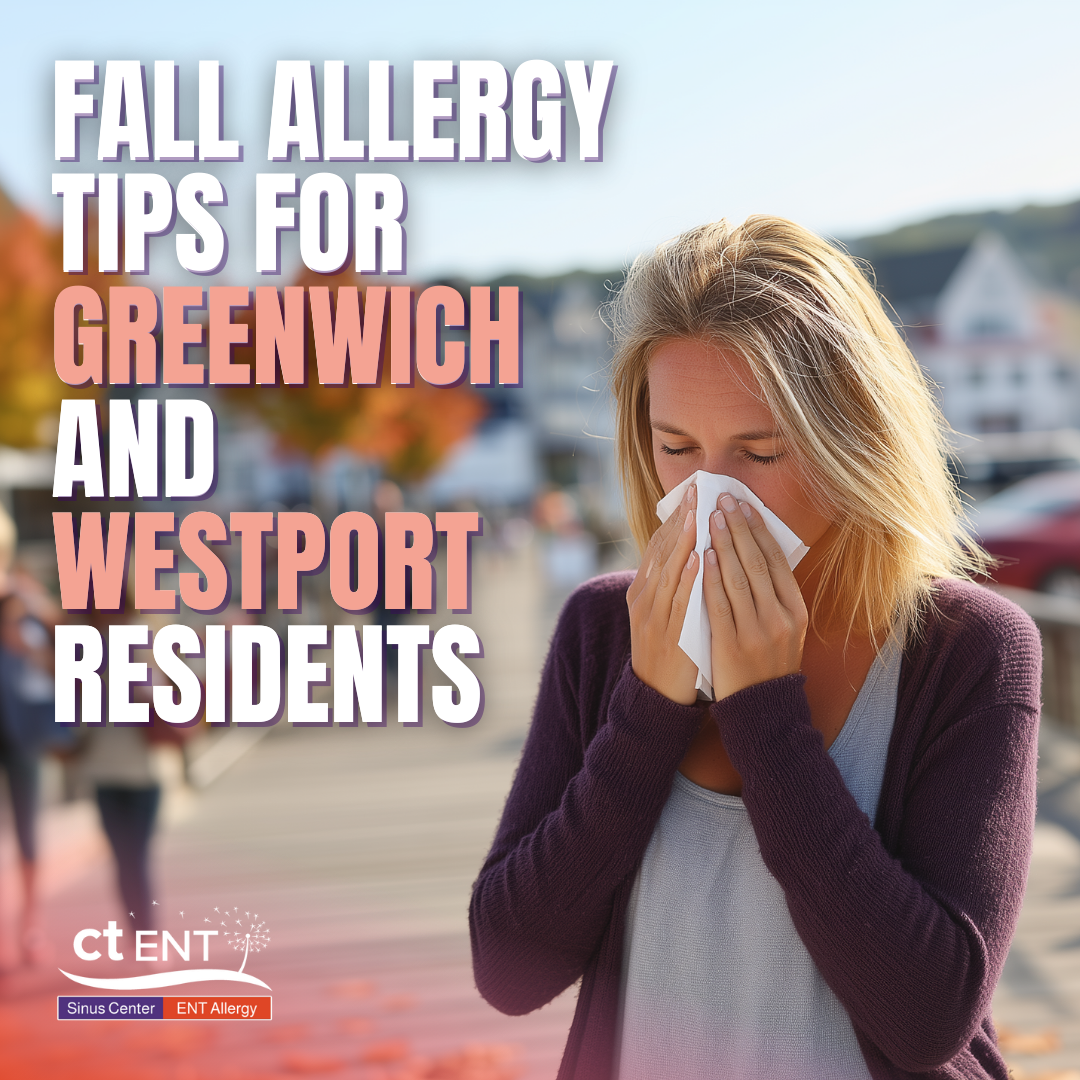.png)
Fall Allergy Tips for Greenwich and Westport Residents
Connecticut is admired for its historic towns, coastal beauty, and world-class institutions like Yale University. But the same natural variety that makes the state so appealing can also create challenges for allergy sufferers. Diverse tree and plant life contribute to high pollen counts and airborne allergens that may trigger symptoms, affecting daily comfort and productivity.
While the colder winter months often provide relief from outdoor allergens, spring through fall can be especially difficult. Tree pollen dominates in the spring, grasses rise in the summer, and fall brings new challenges with weed pollen and mold. Indoor triggers such as dust mites or pet dander can also make winter uncomfortable for some residents.
For many people in Greenwich, Westport, and surrounding Connecticut communities, fall is one of the toughest seasons. Ragweed, sagebrush, and other weeds release pollen well into October, while damp conditions and decaying leaves promote mold growth. Knowing when and why these allergens spike is the first step toward better management.

Weed Pollen in the Fall
Fall is peak season for weed allergies. Ragweed is the most common culprit in Connecticut, but other weeds such as wormwood, sagebrush, and amaranth can also trigger symptoms. Weed pollen season usually begins in August and lasts until the first hard freeze—often late October—when plant growth and pollination slow down.
Mold Allergies in Fall
Mold is another major contributor to allergy symptoms during the autumn months. As leaves fall and begin to decompose, damp conditions create the perfect environment for mold growth. The resulting airborne mold spores can trigger symptoms in sensitive individuals throughout the season.
Common Fall Allergy Symptoms
Recognizing the signs of seasonal allergies is the first step toward better management. Symptoms may include:
- Frequent sneezing
- Runny nose with thin, watery, clear mucus
- Nasal congestion that makes breathing through the nose difficult
- Itchy, watery eyes
- Scratchy or irritated throat
- Cough
- Headaches or sinus pressure
- Skin rashes or hives
Breathe Easy: Allergy Tips During Peak Fall Allergy Season
Allergies can be frustrating, but there are practical steps you can take to reduce your exposure and manage symptoms more effectively:
✔️ Check daily pollen counts. Use online resources like The Weather Channel or AccuWeather to monitor conditions before planning outdoor activities.
✔️ Plan your day around pollen levels. Pollen counts are usually highest in the morning and on windy days. Outdoor activities are often easier before dawn or in the late afternoon/evening.
✔️ Wear protective clothing. Hats, scarves, and dust masks can help limit allergen exposure when outdoors.
✔️ Shower after being outside. Washing your hair, skin, and clothes helps remove pollen and mold spores you may have brought indoors.
✔️ Keep your home sealed and clean. Close windows and doors on high-pollen days, vacuum regularly (with a HEPA filter if possible), and wash bedding frequently.
✔️ Keep pets clean. Groom pets more often, and clean them after outdoor activity to avoid tracking allergens inside.
✔️ Consider over-the-counter options. Decongestants, antihistamines, and nasal sprays may help provide temporary symptom relief. Always use them as directed and ask your provider if they’re appropriate for you.
✔️ Ask about allergy testing. Since everyone has a unique allergy profile, testing can help identify your specific triggers and guide a more tailored treatment plan.
✔️ Discuss immunotherapy options. If lifestyle adjustments and medications aren’t enough, your provider may suggest sublingual immunotherapy (allergy drops). While this is an off-label treatment in the U.S., it may help reduce sensitivity to allergens over time. Results vary by patient.
Stop the Suffering With CT-ENT
If allergies are disrupting your daily comfort or returning each season, professional evaluation may help you better understand and manage your symptoms. At CT-ENT, our team provides testing and treatment options for patients in Greenwich, Westport, and surrounding Connecticut communities.
Schedule a consultation today and start your journey toward better breathing and an even better overall health.

